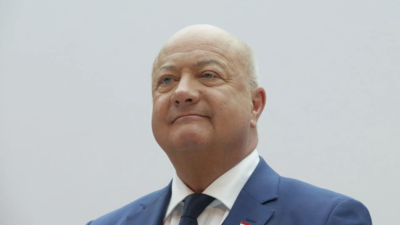
Likely new chancellor, Christian Stocker from the People’s Party
BERLIN: Three mainstream political parties in Austria said Thursday that they had reached an agreement to form a new government that excludes the far right, ending five months of roller-coaster negotiations after an election last fall.
It was an improbable comeback for a diverse political coalition that was tripped up by policy infighting when it tried and failed to form a government earlier this year.
And it was a bitter setback for the Freedom Party, which finished first in last year's elections on the strength of an anti-establishment,
anti-immigrant campaign
and was briefly on the cusp of giving Austria its first far-right chancellor in the postwar era. No party came near winning a majority of votes or seats in parliament.
The likely new chancellor,
Christian Stocker
, will instead come from the center-right party that has led the nation for most of the last seven years: the
People's Party
, which finished second in the September elections, as voters punished it for a string of corruption scandals that mostly occurred years ago.
Stocker is set to lead the first
three-party coalition
in an Austrian government, alongside the
Austrian Social Democrats
and the centrist NEOS party. The coalition will announce ministerial appointments Friday.
The announcement freezes out the Freedom Party, founded by former Nazi soldiers in the 1950s, which failed in its own attempt to form a government earlier this year.
The new government will start on thin ice. The Freedom Party has only grown more popular since last fall and is now backed by a third of the country.
Polls show Austrians remain frustrated about an economy that has spent the last two years in recession and worried about immigration to the country, particularly from predominantly Muslim countries. The Freedom Party made both a central issue in its last campaign, promising widespread deportations and a ban on political forms of Islam.
In a nod to those issues, the new government said it would toughen its stance on migration by not allowing asylum-seekers to bring their families, while banning headscarves for girls younger than 18.
"We are honest: These are going to be hard years, two hard years," said Beate Meinl-Reisinger, the head of NEOS. "We are in a difficult economic situation; we are in a difficult budgetary situation," she said.

 2 months ago
59
2 months ago
59




























 English (US)
English (US)